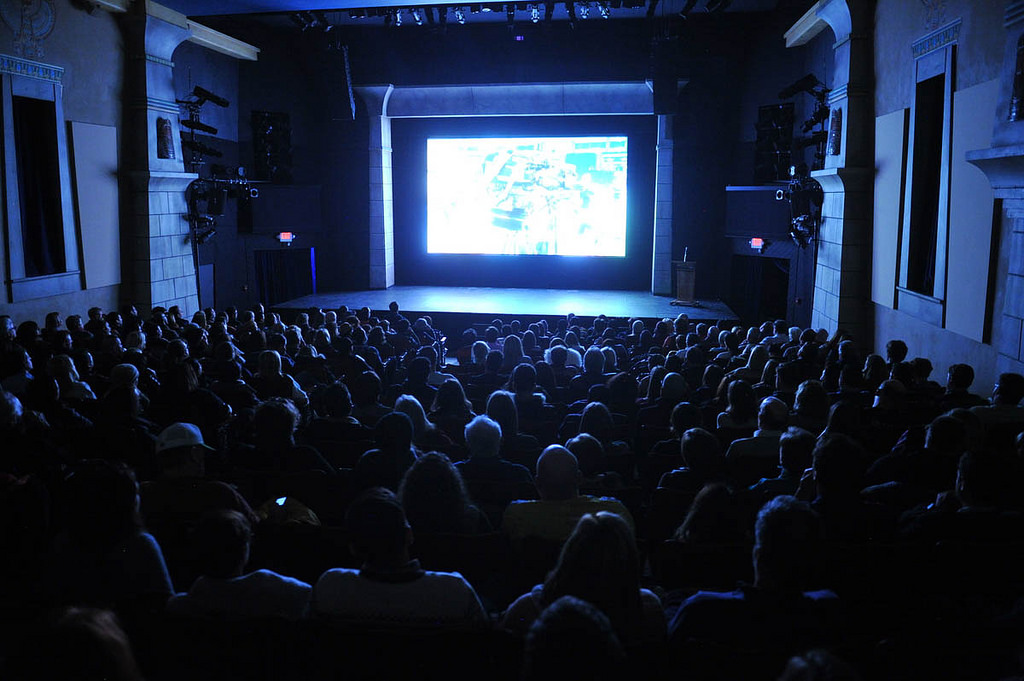Editor’s note: Jomo Fray is one of three recipients of the Sundance Institute’s Roger Ebert Fellowship for Film Criticism for 2018.
In the novel Fear and Loathing in Las Vegas, Hunter S. Thompson recalls his time in the ’60s during the cultural revolution and writes:
“There was madness in any direction, at any hour, you could strike sparks anywhere. There was a fantastic universal sense that whatever we were doing was right, that we were winning. And that, I think, was the handle. That sense of inevitable victory over the forces of Old and Evil. Not in any mean or military sense, we didn’t need that. Our energy would simply prevail. We had all the momentum, we were riding the crest of a high and beautiful wave. So, now, less than five years later, you can go on a steep hill in Las Vegas and look west. And with the right kind of eyes you can almost see the High Water Mark. That place where the wave finally broke and rolled back.”
There is a profound sadness delivered in this retelling of the time. The feeling of the inevitability of change and the ultimate disappointment of things not changing at all.
I feel like we are on the brink of starting to discover as a wider culture the systems and subsystems of power that are at play in our society. The terrifying part is in seeing our own deep flaws, but the exciting component is using these moments of reflection to have a conversation around who we are and if this is the way we truly wish to live. I think art is, at its heart, a constant conversation about this very question. Although Hunter S. Thompson wrote these words 47 years ago, I believe a measure of it still rings true. As a culture we are beginning to face the systemically abhorrent treatment of women within the film industry (and other industries) as well as the lack of funding and support for traditionally overlooked communities within filmmaking and art. Again, the wave is rising and it is a question of will we push past the water mark left to us by the cultural revolution or have the wave break and roll back again. My time at 2018 Sundance Film Festival filled me with a hope that we may rise.
During my time at the festival, I spent a large amount of time in the company of artists and fellow filmmakers. Among the filmmakers I spoke with, there was a deep excitement for the future of our form. The palpable excitement around creators normally relegated to the fringe was electric. The visibility of women and people of color at the festival this year, in front of the camera and behind, felt tangible. Seeing another artist of color felt exciting; there was a real sense of camaraderie this year. I felt seen and supported.
Not only did the programming reflect these shifts, but also the goals of the Sundance Institute itself. It is one thing to champion women and people of color in film but it is something else to “aggressively advocate” as Robert Redford said during the opening press conference for the festival. This felt like a significant turn. Not even in behavior, because there have been Sundance Institute initiatives in the past that have championed these filmmakers, but the difference was in the strength and conviction of the articulation. They wanted to aggressively support the work and development of new voices from communities often overlooked in film. As a filmmaker on the ground, I felt this resolution. There seemed to be an added intent in the ways that the festival stood with filmmakers. One can see this even in the introduction of the Code of Conduct this year. On every festival badge one can find this printed on the back:
Sundance Institute is committed to allowing attendees to experience the Sundance Film Festival free of harassment, discrimination, sexism, and threatening or disrespectful behavior. We reserve the right to revoke, without notice or refund, credentials or access to Festival events and venues for those who engage in such conduct.
In past years there may have been an unspoken culture of behavior, but this year we are seeing the Sundance Institute being upfront and direct about their expectations on filmmakers. I think this is an exciting development and speaks to a future in which we as artists are more intentional about the shaping of our shared spaces. Sundance gave me hope that through storytelling, added representation, and empathy we could help change the conversation and the culture.
Other articles from the Sundance 2018 Ebert Fellows:
“Emergency” Stands Out in Shorts Program by Brandon Towns
Bo Burnham’s “Eighth Grade” Captures Imperfect Adolescence by Gary Wilkerson Jr.
Mixing Up the Cards: Boots Riley on “Sorry to Bother You” by Jomo Fray











